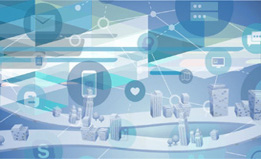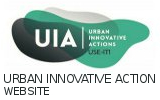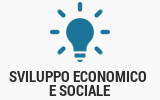Project Outline
OBJECT: project outline to candidate at UIA 2018
TOPIC: JOBS AND SKILLS IN THE LOCAL ECONOMY
The project aims at designing and building the future metropolitan landscape of jobs, to allow a smart and inclusive transition to a more environmentally economy for a sustainable metropolitan city.
Milano is recognized as one of the EU’s leading business ecosystems, and a benchmark in Italy concerning innovation and entrepreneurship. For this reason, radical technological transformations such as the 5G communication technology and other enabling technologies will be implemented and experimented here. For the first time in Europe, it will be possible to observe their impact on several fields like health, urban mobility, safety, entertainment, manufacturing, as well as on education and training.
The project will have its impact on all the inhabitants and users of the Milanese metropolitan area (citizens, students, workers, entrepreneurs, actors of innovation). This area has 134 municipalities where 3.3 million people live and more than 300 thousand companies operate. Moreover, this area has some smart economic districts, those silent actors of innovations that work in the shadow of Milan, contributing at reinforcing its image in theworld.
The big Milan has still two faces
Milan is a rich place, but not everyone is equally rich in Milan, especially those that live in the peripheries have a significantly lesser income than the happy few living in the city centre. According to to the EU-financed project Divercities (www.urbandivercities.eu/milan ) the province of Milan has consistently been the wealthiest of the country: its per capita GDP is among the highest in Italy. However, that wealth is not equally distributed: the richest 10% owns 40% of the income; their income is 22 times larger than that of the poorest 10% (a Gini index of 0.51, by far the highest among the largest Italian metropolitan areas).
Also in the metropolitan area, inequality is still a big factor, indeed Twig shows that the in the same territory there is the richest municipality in Italy (Basiglio with more than 43 thousand € of GDP per capita), and municipalities like Bollate that have a GDP per capita below the national average.
These disparities will likely be exacerbated in the next years by the immigration, that could create neighbourhoods of poverty and social exclusion unless actions are taken.
A smart governance leading to a widespread and inclusive innovation
However, a deep and radical process of innovation has to be inclusive, otherwise the risk is to create another window-dressing operation that would exclude the main actors and lots of potential beneficiaries that in the long run can make the difference, also in term of scale of the challenge.
Without solid bases, cosmetic project are not sustainable, for this reason smart governance is the key to develop and harmonize the different elements of the sustainable metropolitan area.
Since 2015 the Metropolitan City of Milan has been established to govern this territory.
The true challenge for this institution is to enlarge the perspective, including the complexity of the stakeholders, to allow the metropolitan area to work for three years as a multidisciplinary experimental lab that will address the change and transformation of the workforce towards the future so that it would become a benchmark for the other metropolitan areas of Europe.
Seven clusters of innovation
There are seven homogeneous areas in the metropolitan territory. Each of them will become innovation cluster that will lead, test and transfer – as next practices - the innovative trends of citizenship and jobs, from a specific point of view:
1. Robotics and Artificial Intelligence (future jobs and skills needed)
2. Smart-working and welfare;
3. Smart business incubation, pre-incubation and entrepreneurial mind-set (youth);
4. Social and economic inclusion of immigrants;
5. New skills and capabilities for sustainable and green business and models;
6. Fab Labs, open innovation and collaborative innovation;
7. Digital innovation and active/participative citizenship (e.g. aged people)
The Metropolitan City of Milan will ensure the governance of the whole process and will also work at:
- creating transversal networks of actors, to push innovation running along the whole metropolitan territory and reaching the education hubs;
- making the whole metropolitan area more attractive for innovators and creatives from all over the world.
The Metropolitan City of Milan aims at becoming the first multi-urban-job-lab in Europe.
Data creazione: Fri Mar 23 13:14:07 CET 2018



